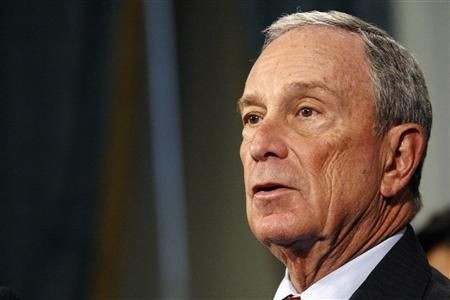Storm-hit New Yorkers Uneasy About Decision to Hold Marathon

(Reuters) - A symbol of resilience, or tactless and ill-timed? New York Mayor Michael Bloomberg's decision to proceed with the world's largest marathon on Sunday is stirring up controversy in the storm-ravaged metropolis.
As emergency workers wade through flooded homes to look for survivors and millions of people remain without power in the Northeast, the death toll from superstorm Sandy has swelled to 95.
"If they take one first responder from Staten Island to cover this marathon, I will scream," New York City Councilman James Oddo said on his Twitter account. "We have people with no homes and no hope right now."
Bloomberg has vowed the marathon will not divert any resources from victims, and expects power to be restored to downtown Manhattan by race day. In defending his decision to go forward, the mayor cited the thousands of out-of-town visitors who come for the marathon.
"There's an awful lot of small businesses that depend on these people. We have to have an economy," Bloomberg told a news conference on Wednesday.
"It's a great event for New York, and I think for those who were lost, you know, you've got to believe they would want us to have an economy and have a city go on for those that they left behind."
"If the city is able to put on the marathon safely and it doesn't divert resources away from rescue, then runners should take to the street," said Lisa Tobin, 35, a pastry cook from the Bronx who will be running in the ING New York City Marathon for the first time.
Dave Jaffares, who tends bar at Mullanes Bar & Grill, said they usually make $2,000 to $3,000 more on marathon day. The bar is along the marathon route in Fort Greene, Brooklyn.
"It needs to happen. The marathon is coming at a great time. It gets people back into the idea that we are New York," said Jaffares. "This is what we do, we do a marathon every year. Nothing stops us."
The New York Road Runners, which organizes the marathon, said the event will bring $340 million to the city. The club also announced on Thursday that it will donate at least $1 million, or $26.20 for each of the more than 40,000 runners expected to participate, to aid New Yorkers affected by Sandy.
The Rudin Family, one of the founding members of the marathon, said it would donate $1.1 million and the ING Foundation said it would give $500,000.
"We're not looking to be a drain on any of the city resources," NYRR spokesman Richard Finn told Reuters. NYRR had hiked the race fee this year, in part to pay police overtime.
RUNNERS AMBIVALENT
On Thursday, there were signs of recovery in city life: some subway service was restored, and Bloomberg said city parks would re-open on Saturday.
But much of the region was still a disaster zone. The southern third of Manhattan was largely without electricity, and many towns in New Jersey remained crippled from record flooding. Many trees in Central Park, where the race ends, were also uprooted by near hurricane-force winds.
The Marathon will shut more than 20 miles of city roads and typically requires more than 1,000 police to man the route.
"Things are everything but normal for so many people," said Patricia Profita, a teacher who lives in the Great Kills neighbourhood of Staten Island. "People should not be running through the boroughs, but instead running to aid those people."
The storm has killed at least 39 people in New York City, almost half of whom were in Staten Island.
The NYRR club announced on its Facebook page last night that this year's marathon is dedicated to the City of New York, the victims of the hurricane and their families.
But the majority of the more than 270 comments on the page were critical of the decision. Dana Donadio wrote, "As a former Staten Island resident, current Manhattan resident and runner of 2 NYC Marathons I have to say this is an extremely bad idea. The city's resources could be put to much better use at this time."
Scott Cohen, 52, who is running his 18th New York City Marathon in a row, admitted it "seems frivolous in light of the death, disruption and despair in parts of the city."
Still, the fitness trainer expects that by Sunday most New Yorkers will be supportive. "The race has always been a 26.2 mile block party and the city feels the love."
(Reporting by Mike Erman and Phil Wahba; Additional reporting by Nadia Damouni and Caryn Trokie; Editing by Tiffany Wu and Todd Eastham)
© Copyright IBTimes 2025. All rights reserved.






















